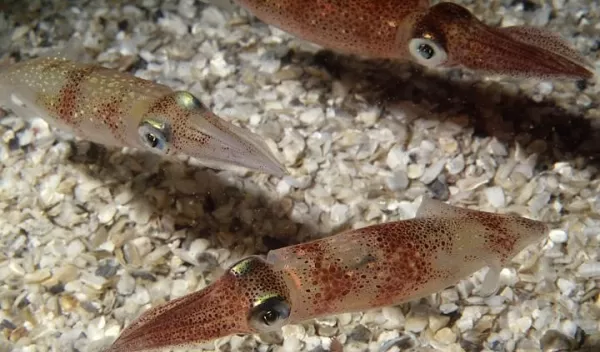
First gene knockout in a cephalopod
A team at the Marine Biological Laboratory in Woods Hole, Massachusetts, has achieved the first gene knockout in a cephalopod using the squid Doryteuthis pealeii, an important research organism in biology for nearly a century. The U.S. National Science Foundation-funded study, led by MBL scientists Joshua Rosenthal and Karen Crawford, is reported in the journal Current Biology.
The team used CRISPR-Cas9 genome editing to knock out a pigmentation gene in squid embryos, which eliminated pigmentation in the eye and in skin cells with high efficiency.
"This is a critical first step toward the ability to knock out -- and knock in -- genes in cephalopods to address a host of biological questions," Rosenthal says.
Cephalopods (squid, octopus and cuttlefish) offer many avenues for study with applications in a range of fields, from evolution and development to medicine, robotics, materials science and artificial intelligence. The animals have the largest brains of all invertebrates, a nervous system capable of instantaneous camouflage and sophisticated behaviors, a unique body plan, and the ability to extensively recode their own genetic information in messenger RNA.
The ability to knock out a gene to test its function is an important step in developing cephalopods as genetically tractable organisms for biological research, augmenting the handful of species that currently dominate genetic studies, such as fruit flies, zebrafish and mice.
It is also a necessary step toward having the capacity to knock in genes that facilitate research, such as genes that encode fluorescent proteins that can be imaged to track neural activity or other dynamic processes.
Studies with Doryteuthis pealeii have led to advances in neurobiology, beginning in the 1950s with the description of action potentials (nerve impulses). For decades, D. pealeii has drawn neurobiologists from all over the world to the Marine Biology Laboratory, which collects the squid from local waters.
"NSF provides support for advanced molecular biology facilities at field stations and marine labs that enable leading edge research like this," says Peter McCartney, a program director in NSF's Division of Biological Infrastructure.
